This article was co-authored by Roy Nattiv, MD and by wikiHow staff writer, Hunter Rising. Dr. Roy Nattiv is a Board-Certified Pediatric Gastroenterologist in Los Angeles, California. With over 20 years of experience he specializes in a broad range of pediatric gastrointestinal and nutritional illnesses such as constipation, diarrhea, reflux, food allergies, poor weight gain, SIBO, IBD, and IBS. He completed his pediatric residency at the Children’s Hospital at Montefiore, Albert Einstein College of Medicine in New York, and his fellowship at the University of California, San Francisco (UCSF). While at UCSF, he was a California Institute of Regenerative Medicine (CIRM) fellowship trainee and was awarded the North American Society for Pediatric Gastroenterology, Hepatology, and Nutrition (NASPGHAN) Fellow to Faculty Award in Pediatric IBD Research. Dr. Nattiv received his undergrad degree from the University of California, Berkeley, and his medical degree (MD) from the Sackler School of Medicine in Tel Aviv, Israel.
There are 13 references cited in this article, which can be found at the bottom of the page.
wikiHow marks an article as reader-approved once it receives enough positive feedback. In this case, several readers have written to tell us that this article was helpful to them, earning it our reader-approved status.
This article has been viewed 130,909 times.
It’s really unpleasant when you feel nauseated and have the urge to vomit. Having chronic nausea doesn’t always mean you’re about to throw up, but it can still make you pretty uncomfortable. Luckily, there are a lot of things you can try that will ease your stomach and help control your symptoms. We’ll start with some ways to get immediate relief and move on to cover changes you can make to your daily routine so you can feel better!
Steps
Expert Q&A
Did you know you can get expert answers for this article?
Unlock expert answers by supporting wikiHow
-
QuestionWhy do I feel nauseous?
 Roy Nattiv, MDDr. Roy Nattiv is a Board-Certified Pediatric Gastroenterologist in Los Angeles, California. With over 20 years of experience he specializes in a broad range of pediatric gastrointestinal and nutritional illnesses such as constipation, diarrhea, reflux, food allergies, poor weight gain, SIBO, IBD, and IBS. He completed his pediatric residency at the Children’s Hospital at Montefiore, Albert Einstein College of Medicine in New York, and his fellowship at the University of California, San Francisco (UCSF). While at UCSF, he was a California Institute of Regenerative Medicine (CIRM) fellowship trainee and was awarded the North American Society for Pediatric Gastroenterology, Hepatology, and Nutrition (NASPGHAN) Fellow to Faculty Award in Pediatric IBD Research. Dr. Nattiv received his undergrad degree from the University of California, Berkeley, and his medical degree (MD) from the Sackler School of Medicine in Tel Aviv, Israel.
Roy Nattiv, MDDr. Roy Nattiv is a Board-Certified Pediatric Gastroenterologist in Los Angeles, California. With over 20 years of experience he specializes in a broad range of pediatric gastrointestinal and nutritional illnesses such as constipation, diarrhea, reflux, food allergies, poor weight gain, SIBO, IBD, and IBS. He completed his pediatric residency at the Children’s Hospital at Montefiore, Albert Einstein College of Medicine in New York, and his fellowship at the University of California, San Francisco (UCSF). While at UCSF, he was a California Institute of Regenerative Medicine (CIRM) fellowship trainee and was awarded the North American Society for Pediatric Gastroenterology, Hepatology, and Nutrition (NASPGHAN) Fellow to Faculty Award in Pediatric IBD Research. Dr. Nattiv received his undergrad degree from the University of California, Berkeley, and his medical degree (MD) from the Sackler School of Medicine in Tel Aviv, Israel.
Board Certified Gastroenterologist
Warnings
- If your nausea lasts longer than a week, you don’t feel relief with home remedies, or you think there’s a chance you’re pregnant, consult with your doctor to find the cause.[21]⧼thumbs_response⧽
References
- ↑ https://my.clevelandclinic.org/health/symptoms/8106-nausea--vomiting
- ↑ https://www.mskcc.org/cancer-care/patient-education/acupressure-nausea-and-vomiting
- ↑ https://www.sciencedaily.com/releases/2009/04/090415170848.htm
- ↑ https://www.ncbi.nlm.nih.gov/pmc/articles/PMC4818021/
- ↑ https://www.cancerresearchuk.org/about-cancer/coping/physically/sickness/treatment/other-ways-of-controlling-sickness
- ↑ https://www.mountsinai.org/health-library/poison/peppermint-oil-overdose
- ↑ https://stanfordhealthcare.org/medical-conditions/digestion-and-metabolic-health/chronic-nausea/treatments.html
- ↑ https://www.mayoclinic.org/healthy-lifestyle/nutrition-and-healthy-eating/in-depth/water/art-20044256
- ↑ https://www.mayoclinic.org/healthy-lifestyle/nutrition-and-healthy-eating/in-depth/water/art-20044256
- ↑ https://medlineplus.gov/nauseaandvomiting.html
- ↑ https://www.mayoclinic.org/symptoms/nausea/basics/when-to-see-doctor/sym-20050736
- ↑ https://medlineplus.gov/nauseaandvomiting.html
- ↑ https://stanfordhealthcare.org/medical-conditions/digestion-and-metabolic-health/chronic-nausea/treatments.html
- ↑ https://www.mayoclinic.org/symptoms/nausea/basics/when-to-see-doctor/sym-20050736
- ↑ https://www.mayoclinic.org/symptoms/nausea/basics/when-to-see-doctor/sym-20050736
- ↑ Roy Nattiv, MD. Board Certified Gastroenterologist. Expert Interview. 14 October 2020.
- ↑ https://my.clevelandclinic.org/health/symptoms/8106-nausea--vomiting
- ↑ https://www.uofmhealth.org/health-library/sig56596
- ↑ https://www.aafp.org/afp/2007/0701/p76.html
- ↑ https://www.aafp.org/afp/2007/0701/p76.html
- ↑ https://my.clevelandclinic.org/health/symptoms/8106-nausea--vomiting
About This Article
If you’re dealing with chronic nausea and you’re not sure what’s causing it, try taking a pregnancy test. Nausea is a common symptom of pregnancy, especially during the first 3 months. If you’re not pregnant, check the labels on any medications you’re taking to find out if they might be causing your nausea. You can also minimize nausea by cutting back on alcohol if you drink. To keep your nausea under control, eat bland foods like bread, cereal, and fresh fruit, and drink plenty of water. You should also avoid common triggers, such as food allergens and strong odors. For more advice from our Medical co-author, including how to use natural remedies for nausea, read on!
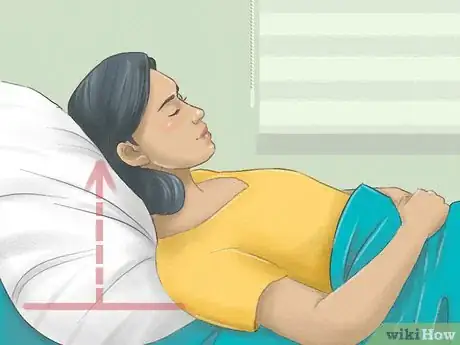
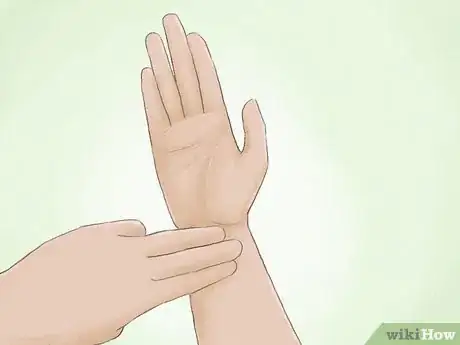


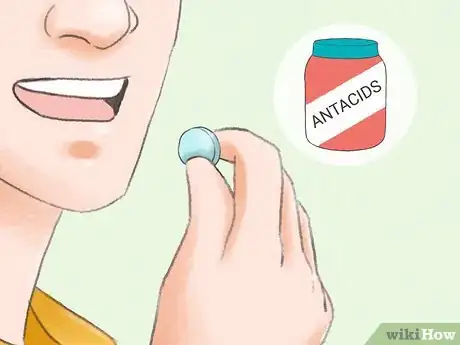


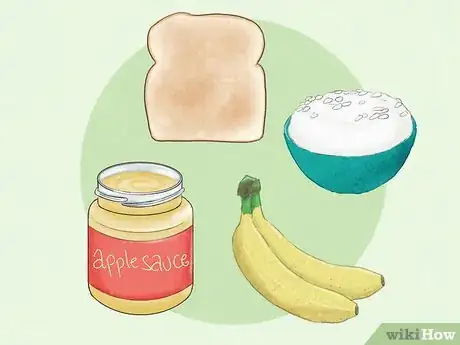
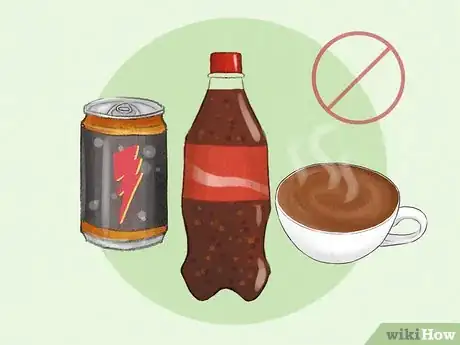
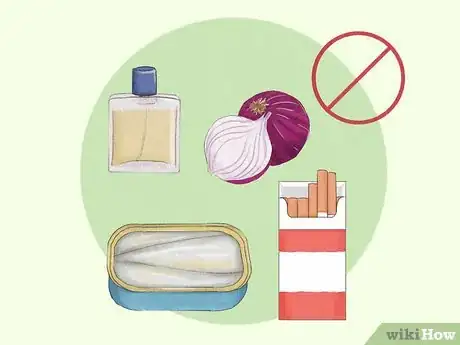
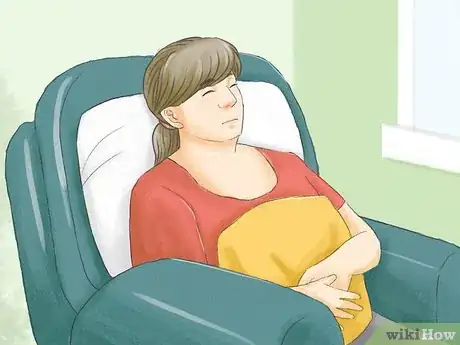
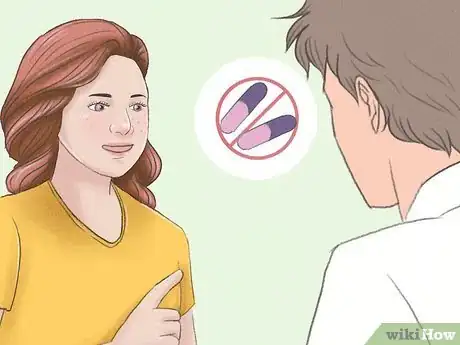

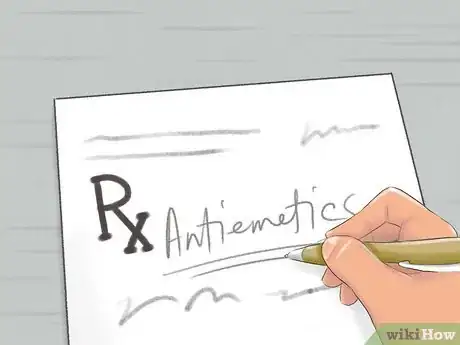
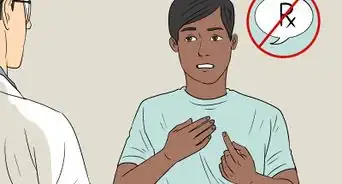






-Step-9-Version-5.webp)



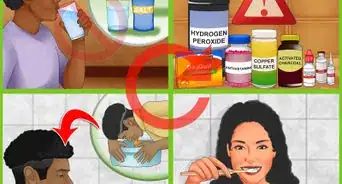









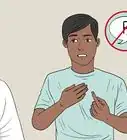
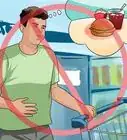





































Medical Disclaimer
The content of this article is not intended to be a substitute for professional medical advice, examination, diagnosis, or treatment. You should always contact your doctor or other qualified healthcare professional before starting, changing, or stopping any kind of health treatment.
Read More...